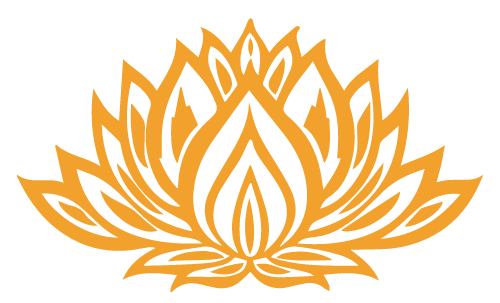DEATHWALKER'S GUIDE TO LIFE SEASON 2
EPISODE 12
Dying Shouldn't Cost the Earth
October 30, 2022
EPISODE 12
Dying Shouldn't Cost the Earth
Death in Print: 'Facing Extinction' by Catherine Ingram, Meet: Environmental activist and Living Legacies founder Lynda Hannah, Death on Screen: Living in the Time of Dying
Listen to Episode 12 on the following podcast platforms
Or, if you've already listened to the show, scroll down for more info and links . . .
DEATH IN PRINT
Facing Extinction




‘Facing Extinction' is a continually evolving long-form essay written by former journalist and current dharma teacher Catherine Ingram. It was first published on her website in 2019 and is updated every month as new data emerges about the crises we face. The essay is available in both print and audio format, although these haven’t been updated since she originally published the essay three years ago.
As a journalist from 1982 to 1994, Ingram specialised in social and environmental issues, as did I at the beginning of my career almost a decade later.
We both wrote about global warming (the phrase we most used in those days). Ingram writes: “Because it seemed a far-off threat, we could intellectually discuss it without fear that it would affect our own lives in terribly significant ways. As time marched on, I began to awaken to how fast the climate was changing and how negative would be its impacts.”
This was almost 30 years ago now, and we’ve been barrelling along on the tragic trajectory ever since.
At the beginning of her essay, Ingram compares the impending extinction of our way or life, if not our species, with a diagnosis of pancreatic cancer. In other words, it’s not definite that we will die soon, but it is highly probable.
Then she explores the role of courage, the dangers of distraction and denial, and makes practical suggestions about how we can navigate our way through the inevitable social unrest that will result as catastrophic climate events become more frequent.
As Catherine writes: "Courage is often confused with stoicism, the stiff upper lip, bravado that masks fear. There is another kind of courage. It is the courage to live with a broken heart, to face fear and allow vulnerability, and it is the courage to keep loving what you love 'even though the world is gone'."
Later in the essay, Ingram sets us straight that there are no techno fixes and urges us to let go of the fantasy that green technology – or an escape path to Mars – will save us. She urges us to let go of our obsession with leaving a legacy and shift our focus to being tender with each other, especially as we all embark on experiencing anticipatory grief – that is, grief for what has yet to come (a concept I explored with counsellor Becky Aud-Jennison in episode 1 of Season 2).
"To stay steady, you may be forced into a witnessing presence, vast enough to contain your grief," Ingram writes. "You may acclimate to living with grief without the assumption that it should or will dissipate. Despite this or because of it, you may notice a growing tendency to appreciate simple moments of connection and many small joys. And you may feel more awake than you have for a long time.
"Living with the grief of facing human extinction may be akin to how a person with a terminal diagnosis might experience his or her final phase, the awareness of death undeniable, and the magnificence of life ever more obvious."
The answer, in the end, is love. As she says, "What else is there to do now?"
This can be achieved in a number of ways, including:
As a journalist from 1982 to 1994, Ingram specialised in social and environmental issues, as did I at the beginning of my career almost a decade later.
We both wrote about global warming (the phrase we most used in those days). Ingram writes: “Because it seemed a far-off threat, we could intellectually discuss it without fear that it would affect our own lives in terribly significant ways. As time marched on, I began to awaken to how fast the climate was changing and how negative would be its impacts.”
This was almost 30 years ago now, and we’ve been barrelling along on the tragic trajectory ever since.
At the beginning of her essay, Ingram compares the impending extinction of our way or life, if not our species, with a diagnosis of pancreatic cancer. In other words, it’s not definite that we will die soon, but it is highly probable.
Then she explores the role of courage, the dangers of distraction and denial, and makes practical suggestions about how we can navigate our way through the inevitable social unrest that will result as catastrophic climate events become more frequent.
As Catherine writes: "Courage is often confused with stoicism, the stiff upper lip, bravado that masks fear. There is another kind of courage. It is the courage to live with a broken heart, to face fear and allow vulnerability, and it is the courage to keep loving what you love 'even though the world is gone'."
Later in the essay, Ingram sets us straight that there are no techno fixes and urges us to let go of the fantasy that green technology – or an escape path to Mars – will save us. She urges us to let go of our obsession with leaving a legacy and shift our focus to being tender with each other, especially as we all embark on experiencing anticipatory grief – that is, grief for what has yet to come (a concept I explored with counsellor Becky Aud-Jennison in episode 1 of Season 2).
"To stay steady, you may be forced into a witnessing presence, vast enough to contain your grief," Ingram writes. "You may acclimate to living with grief without the assumption that it should or will dissipate. Despite this or because of it, you may notice a growing tendency to appreciate simple moments of connection and many small joys. And you may feel more awake than you have for a long time.
"Living with the grief of facing human extinction may be akin to how a person with a terminal diagnosis might experience his or her final phase, the awareness of death undeniable, and the magnificence of life ever more obvious."
The answer, in the end, is love. As she says, "What else is there to do now?"
This can be achieved in a number of ways, including:
- Finding your community (or creating one)
- Finding your calm
- Releasing dar visions of the future, and pacing your intake of frightening news
- Being of service
- Being grateful
- Giving up the fight with evolution.
Watch Catherine Ingram
FOR MORE INFORMATION ABOUT DYING: A MEMOIR
Read 'Facing Extinction' by Catherine Ingram.
Listen to Catherine reading 'Facing Extinction'.
Listen to Into the Deep, Catherine Ingram's podcast.
Find out more about Catherine Ingram.
Read 'Facing Extinction' by Catherine Ingram.
Listen to Catherine reading 'Facing Extinction'.
Listen to Into the Deep, Catherine Ingram's podcast.
Find out more about Catherine Ingram.
KŌRERO / CONVERSATION
Meet Lynda Hannah

Lynda Hannah is an environmental activist and social entrepreneur. She founded Living Legacies in 2001 to change the funeral industry to a more sustainable model, empower families to care for their own dead, and reverse climate change.
Big goals - monumental, in fact - but in this episode we hear how they've been partially achieved over the past two decades.
Lynda has recently relaunched her Living Legacies website and funeral care services, and is running a Death Cafe at Bloom from 2pm on Thursday November 10, 2022.
Lynda also offers personalised workshops about living, dying and funerals. These can help you plan your funeral and make your wishes known to your family and friends, and/or explore your feelings and any fears you may have about your death or the death of someone you love.
The next workshop takes place on Sunday November 20 at the Motueka Community Centre [postponed from the original date - November 6 - mentioned on the show].
Lynda nominated 'To Live is To Fly' by Townes Van Zandt as a song she would like played at her funeral or wake. Listen to the song in our 'Farewell songs' playlist.
Big goals - monumental, in fact - but in this episode we hear how they've been partially achieved over the past two decades.
Lynda has recently relaunched her Living Legacies website and funeral care services, and is running a Death Cafe at Bloom from 2pm on Thursday November 10, 2022.
Lynda also offers personalised workshops about living, dying and funerals. These can help you plan your funeral and make your wishes known to your family and friends, and/or explore your feelings and any fears you may have about your death or the death of someone you love.
The next workshop takes place on Sunday November 20 at the Motueka Community Centre [postponed from the original date - November 6 - mentioned on the show].
Lynda nominated 'To Live is To Fly' by Townes Van Zandt as a song she would like played at her funeral or wake. Listen to the song in our 'Farewell songs' playlist.
FOR MORE INFORMATION ABOUT LYNDA HANNAH AND LIVING LEGACIES
Find out more about Living Legacies.
Find out more about upcoming workshops with Lynda Hannah.
Find out more about Living Legacies.
Find out more about upcoming workshops with Lynda Hannah.
DEATH ON SCREEN
Living in the Time of Dying
Living in the Time of Dying is a 52-minute documentary by debut filmmaker Michael Shaw, who sold his house to make the film, after deciding that it would serve as his purpose – a purpose that, in these times, felt for him like a life raft.
Ironically, but perhaps unavoidably, this purpose sees him fly across the world to interview some of the world’s top thought leaders on preparing for the end of civilisation as we know it.
The documentary features interviews with people like Catherine Ingram [see above], Jem Bendell, the author of Deep Adaptation, first nations leader Stan Rushworth and award-winning journalist and author Dahr Jamail.
These interviews – which provide convincing evidence that the end of colonisation, capitalism and consumption are necessary to ensure we have any sort of future on earth – are interspersed with protest footage and stunning images of our natural world.
All of the interviewees invite us to embrace a different way of being. They express a common wish to unite us – not with false hope but with a commitment to living fully and engaging in efforts to reduce our carbon emissions. But, most of all, their testimonies weave together a compelling argument that we need to learn how to hold each other.
I particularly love Bendell’s reference to the analogy of how we can extend the glide, which he learned from an outback pilot. Bendell explains it as follows:
"If your engine cuts out, you've got problems, but the first thing to do is extend the glide because it gives you time to kickstart the engines or solve whatever technical problem you've got or you're also trying to look for a safer place to land. And maybe the third thing is to give yourself time - if you can't call home and say goodbye - to just process your life and say thank you, have some gratitude for the experience of your life."
In the end, Michael Shaw’s key question is, “How can I stay open to the beauty in the world as the changes arrive?” and I believe he provides a convincing answer. And the added bonus is that it essentially gives us the freedom to live life more fully.
Living in the Time of Dying has been included in the official selections of numerous film festivals and was a finalist at this year’s Melbourne Documentary Film Festival.
It’s available to watch for free (although donations are appreciated).
Ironically, but perhaps unavoidably, this purpose sees him fly across the world to interview some of the world’s top thought leaders on preparing for the end of civilisation as we know it.
The documentary features interviews with people like Catherine Ingram [see above], Jem Bendell, the author of Deep Adaptation, first nations leader Stan Rushworth and award-winning journalist and author Dahr Jamail.
These interviews – which provide convincing evidence that the end of colonisation, capitalism and consumption are necessary to ensure we have any sort of future on earth – are interspersed with protest footage and stunning images of our natural world.
All of the interviewees invite us to embrace a different way of being. They express a common wish to unite us – not with false hope but with a commitment to living fully and engaging in efforts to reduce our carbon emissions. But, most of all, their testimonies weave together a compelling argument that we need to learn how to hold each other.
I particularly love Bendell’s reference to the analogy of how we can extend the glide, which he learned from an outback pilot. Bendell explains it as follows:
"If your engine cuts out, you've got problems, but the first thing to do is extend the glide because it gives you time to kickstart the engines or solve whatever technical problem you've got or you're also trying to look for a safer place to land. And maybe the third thing is to give yourself time - if you can't call home and say goodbye - to just process your life and say thank you, have some gratitude for the experience of your life."
In the end, Michael Shaw’s key question is, “How can I stay open to the beauty in the world as the changes arrive?” and I believe he provides a convincing answer. And the added bonus is that it essentially gives us the freedom to live life more fully.
Living in the Time of Dying has been included in the official selections of numerous film festivals and was a finalist at this year’s Melbourne Documentary Film Festival.
It’s available to watch for free (although donations are appreciated).
Watch Living in the Time of Dying
FOR MORE INFORMATION ABOUT LIVING IN THE TIME OF DYING
Find out more about Living in the Time of Dying.
Find out more about Living in the Time of Dying.
Listen to previous Season 2 episodes
OUT APRIL 24, 2022
EPISODE 1
Death in Print: Death and its Terrible, Horrible, No Good, Very Beautiful Lessons by Becky Aud-Jennison, Meet: Deathwalker and author Becky Aud-Jennison, Death on Screen: 'Good Grief'
OUT MAY 8, 2022
EPISODE 2
Death in Print: What Days Are For by Robert Dessaix, Meet: Septuagenerian climate activist Bill McEwan, Death on Screen: Nelson Poetry Map featuring Bill Manhire's poem, 'Kevin'
OUT MAY 22, 2022
EPISODE 3
Death in Print: An Hour to Live, An Hour to Love by Richard Carlson, Meet: Storyteller Tanya Batt, Death on Screen: Imagined Worlds website
OUT JUNE 5, 2022
EPISODE 4
Death in Print: Wild Darkness by Eva Saulitis, Meet: Natural burial pioneer Dawn Jones and her daughter Sylvia Bauer Death on Screen: NZ Natural Burial directory
OUT JULY 3, 2022
EPISODE 5
Death in Print: Actions & Travels: How Poetry Works by Anna Jackson, Meet: Singer/songwriter Nick Feint Death on Screen: 'Good Bones' by Maggie Smith
OUT JULY 24, 2022
EPISODE 6
Death in Print: 'Thanksgiving in Mongolia' by Ariel Levy, Meet: Christchurch Death Cafe and Death Matters NZ founder Melanie Mayell Death on Screen: Baz Luhrmann's 'Elvis'
AUGUST 7, 2022
EPISODE 7
Death in Print: The Eulogy by Jackie Bailey, Meet: Funeral director, interfaith minister and author Jackie Bailey Death on Screen: The Beautiful Lie
OUT AUGUST 21, 2022
EPISODE 8
Death in Print: Finding True Connections by Gareth St John Thomas, Meet: Krisca Gould and Mary Garner from Nelson Tasman Hospice, Death on Screen: Te Kahu Pairuri o Aotearoa Hospice New Zealand website
SEPTEMBER 18, 2022
EPISODE 9
Death in Print: Remote Sympathy by Catherine Chidgey, Meet: Dr Kathryn L Smith, GP who provides physician-assisted dying services, Death on Screen: Station Eleven
OCTOBER 2, 2022
EPISODE 10
Death in Print: My Mother and Other Secrets by Wendyl Nissen and Remember Me by Charity Norman, Meet: Deathwalker and artist Aralyn Doiron, Death on Screen: Trail of Light and Giving Back to the Earth by Green Renaissance
OUT OCTOBER 16, 2022
EPISODE 11
Death in Print: Dying: A memoir by Cory Taylor, Meet: Home-based death care practitioner Claire Turnham, Death on Screen: Death is not the endpoint featuring Zach Bush
Catch up on Season 1 episodes
OUT OCTOBER 3, 2021
EPISODE 2
Death in Print: Before You Knew My Name, Meet: author Jacqueline Bublitz, Death on Screen: 'Dead to Me'
OUT OCTOBER 17, 2021
EPISODE 3
Death in Print: Listen: How to Find the Words for Tender Conversations, Meet: author Kathryn Mannix, Death on Screen: 'Phone of the Wind'
OUT OCTOBER 31, 2021
EPISODE 4
Death in Print: No Pressure, No Diamonds, Meet: legal executive Marie Austin, Death on Screen: 'I Told You I Was Ill: the Life & Legacy of Spike Milligan'
OUT OCTOBER 31, 2021
EPISODE 4
Death in Print: No Pressure, No Diamonds by Teri Dillion, Meet: legal executive Marie Austin, Death on Screen: 'I Told You I Was Ill: The Life and Legacy of Spike Milligan'
OUT NOVEMBER 14, 2021
EPISODE 5
Death in Print: H is for Hawk by Helen Macdonald, Meet: poet & playwright Donna McLeod, Death on Screen: 'Living with Ghosts'
OUT NOVEMBER 28, 2021
EPISODE 6
Death in Print: Mortals: How the Fear of Death Shaped Human Society by Rachel & Ross Menzies, Meet: psychologist and author Rachel Menzies, Death on Screen: Lisel Mueller on 'The Marginalian'
OUT DECEMBER 12, 2021
EPISODE 7
Death in Print: No One is Talking About This by Patricia Lockwood, Meet: author Bonnie Etherington, Death on Screen: 'My Beautiful Broken Brain'







